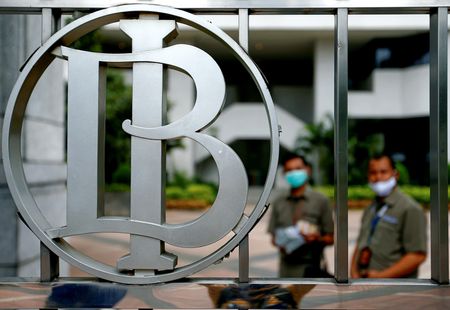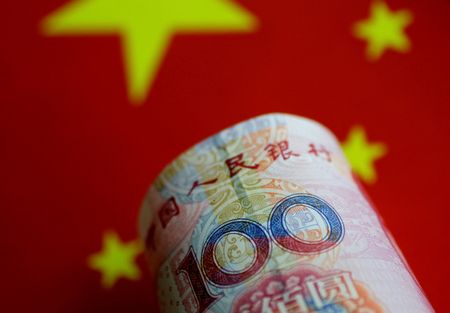By Leika Kihara
TOKYO (Reuters) -The Bank of Japan finished selling off its holdings of stocks bought from 2002 to 2010 in a rare programme to avert disruption to the banking system from the sharply falling prices of equities, central bank data showed on Monday.
When Japan was hit by a domestic banking crisis, the BOJ began buying stocks from financial institutions to help them fend off huge losses from slumping stock prices – an extremely rare move for a central bank.
As markets stabilised, the BOJ began to gradually sell the shares from 2016. The balance of its stock holdings of 2.5 billion yen ($17 million) by June 30 hit zero on July 10, the bank’s balance sheet data showed.
The focus now shifts to the BOJ’s timing and strategy for unloading its 37-trillion-yen holdings of exchange-traded funds (ETF), accumulated in a huge asset-buying programme begun in 2013 that aimed to reflate a moribund economy.
While the BOJ stopped buying ETFs last year, it has not said when and how it could unload the holdings, which have a market value of 70 trillion yen.
Such a move would be another sign of the BOJ unwinding the radical stimulus programme deployed by former Governor Haruhiko Kuroda.
In a report on Friday, Goldman Sachs said when the BOJ decides to unload the ETFs it was likely to gradually sell them in the market, rather than alternatives routes such as transfers to government entities.
BOJ Governor Kazuo Ueda has said the central bank will need more time to scrutinise how best to dispose of its ETF holdings.
($1=147.3800 yen)
(Reporting by Leika Kihara; Editing by Clarence Fernandez)









